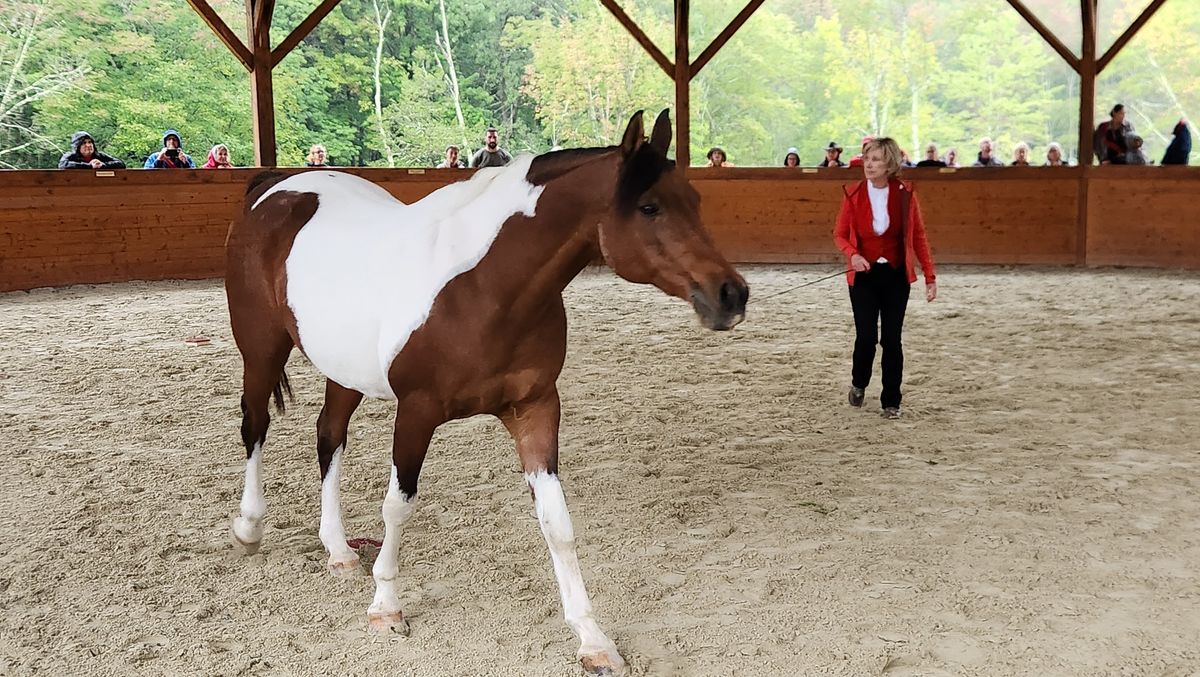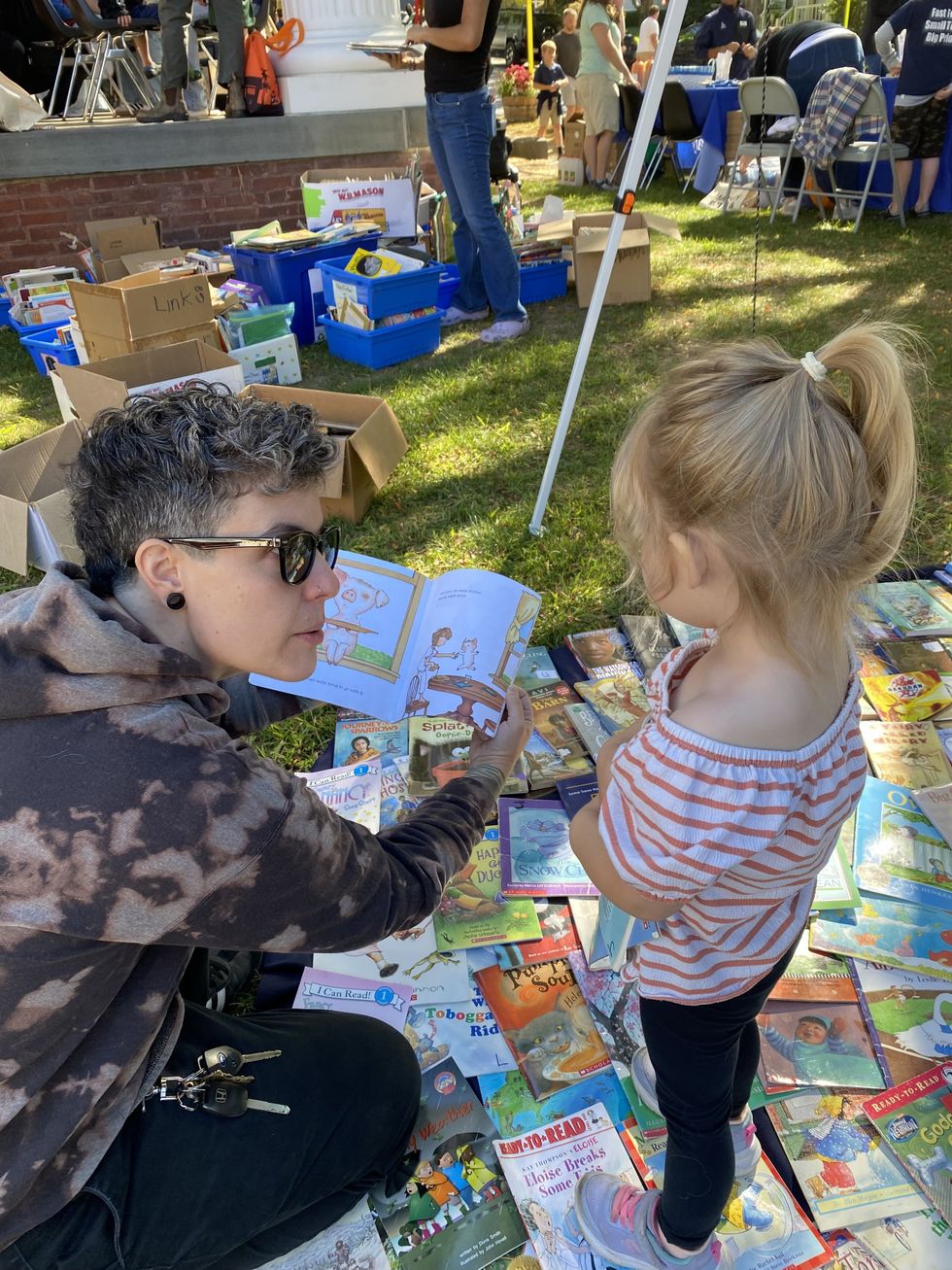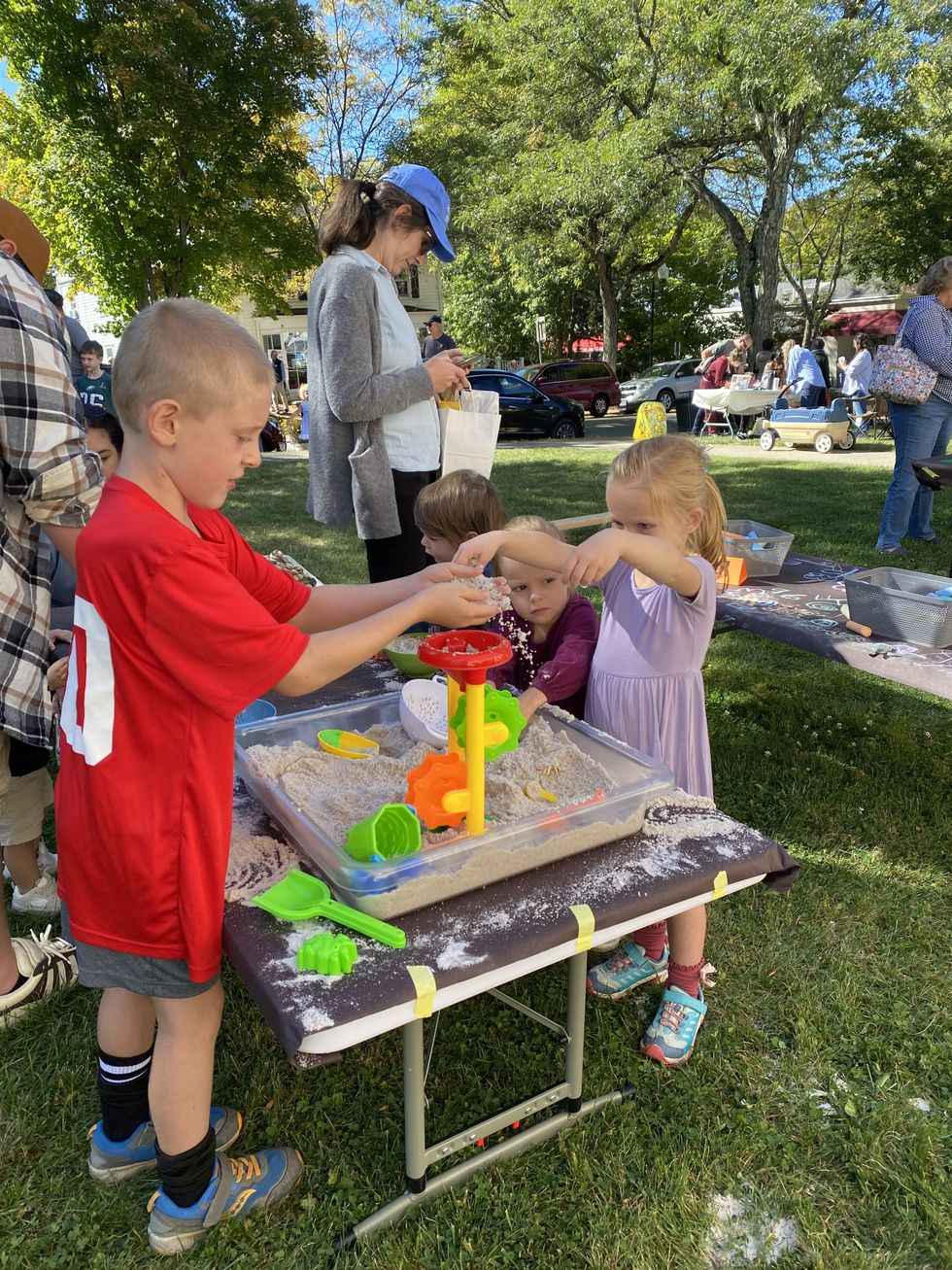Equus Effect: healing with horses

Jane Strong conducting exercises with horse Dutch.
Sava Marinkovic

Jane Strong conducting exercises with horse Dutch.
SHARON — Every day, approximately 20 United States military veterans take their own lives. It was an awareness of this statistic that led Jane Strong and David Sonatore to found the Equus Effect, an equine experiential learning and coaching facility in Sharon, in 2012. Since then, over 1800 veterans, first responders, and others who live or work in high-stress environments have moved through the Equus Effect’s curriculum, acquiring — through contact with horses — the tools to improve communication and compassion, and to navigate the challenges, subtleties, and nuanced relationships of civilian life.
On Saturday, Sept. 7, supporters of the Equus Effect gathered under its round pen’s rainy eaves to learn and observe just why horses are uniquely suited to this restorative work.
“A relationship with a horse is based purely on trust,” said Strong, lead program facilitator and a former competitive rider, “they ask us to engage all our senses and be totally present.” The horse, a prey animal, is profoundly attuned to the emotional and nervous energy of its surroundings as a matter of survival; it is also expressive, honest, and unselfconscious.
When in conversation with a human, a horse asks for the same in return. Approaching a horse, one’s outward and inner aspects must be congruent in order not to unnerve the animal. “You can’t hide behind a mask,” said Strong, explaining that this need for transparency helps people overcome the fear and stigma that cause emotional repression.
Further, work with horses engages the entire body, revealing where trauma might appear stuck. “Our limbic systems work outside time,” said Strong, locating the primitive, lower-order parts of the brain responsible for emotional processing. “So there’s no ‘talking you out’ of trauma.” Instead, work with horses helps those “stuck” with trauma to “move through it and release it through action.”
Huddled around the pen, attendees of the Fall Event were walked through some of these actions and their benefits by program facilitators, alongside horses Dutch, Tango, Lance, and Babe.
Using only body language — such as posture, purposeful eye contact, and controlled breathing — facilitators asked horses to back up, move forward, and walk circles. With patience, and applying the principle of “minimum essential pressure,” horses were coaxed into collaboration with the facilitators, showcasing the massive mammals’ capacity for empathy, partnership, and quiet understanding. In addition to their emotional grounding effect, these exercises help participants build tools for the maintenance of fair, trust-based relationships with other people.
“The connection is deep, almost spiritual,” said 2022 program participant Peter Gworek, a military veteran. “The horses teach you how to manage your energy, connect with your inner self, and be calm.” Also a 2022 alum, veteran Melodie Wilson said that when one is handling a horse, “you can’t think of anything else — you slow down, learn to be more understanding.”
Ultimately, understanding — of oneself and of others — is the key to bridging the divide that Strong says exists between veterans and civilians. Working within that gap are horses, our companions of nearly 6,000 years, who Sonatore points out “might just save the life of someone you one day need to save yours.”

One of the entries in this year’s Community Day Scarecrow Contest, Ichabod Hiccup, at left, seems to be particularly enjoying the solo performance of Wil Greenstreet, whose strolling pop-up saxophone performances delighted visitors to the village on Saturday, Sept. 20. For more photos, turn to Page A8.


Top row, left to right, Caroline Kinsolving, Christopher McLinden, Dana Domenick, Reid Sinclair and Director Hunter Foster. Bottom row, left to right, Will Nash Broyles, Dick Terhune, Sandy York and Ricky Oliver in Agatha Christie’s “The Mousetrap.”
Opening on Sept. 26, Agatha Christie’s legendary whodunit “The Mousetrap” brings suspense and intrigue to the Sharon Playhouse stage, as the theater wraps up its 2025 Mainstage Season with a bold new take on the world’s longest-running play.
Running from Sept. 26 to Oct. 5, “The Mousetrap” marks another milestone for the award-winning regional theater, bringing together an ensemble of exceptional local talent under the direction of Broadway’s Hunter Foster, who also directed last season’s production of “Rock of Ages." With a career that spans stage and screen, Foster brings a fresh and suspense-filled staging to Christie’s classic.
The Playhouse’s casting includes Dana Domenick of Falls Village who leads the cast as Mollie Ralston, the newlywed innkeeper with a secret. Reid Sinclair of Norfolk plays Giles, her husband and partner in hospitality — and maybe in something more sinister. Will Nash Broyles from Lakeville plays the eccentric and enigmatic Christopher Wren, and Sandy York of Sharon will play the role of the imperious Mrs. Boyle. Dick Terhune (Litchfield), Caroline Kinsolving (Salisbury), Ricky Oliver (Pawling), and Christopher McLinden (also Lakeville) round out the cast as the play’s increasingly suspicious guests — and one very determined detective.
As always, Sharon Playhouse has gathered a top-tier creative team to match its cast. The Swader brothers (Christopher and Justin) return with their signature scenic designs, while Kathleen DeAngelis’s costumes and Bobbie Zlotnik’s wigs promise to anchor us firmly in postwar England, even as the plot spirals into timeless psychological suspense. Lighting by Wheeler Moon and sound design by Graham Stone will help turn the cozy theater into a stage crackling with tension.
If you’ve never seen “The Mousetrap,” here’s what you need to know: it’s the murder mystery that truly defined the genre. Premiering in London’s West End in 1952 and still running strong over 30,000 performances later, Christie’s ingenious puzzle unfolds in a snowbound manor house where everyone has something to hide, and no one is safe from suspicion. Its final twist is famously kept secret by audiences — a tradition of theatrical discretion that only deepens the sense of shared experience.
“The enduring success of ‘The Mousetrap’ lies in its suspense, yes, but also in its structure,” said the Playhouse’s Artistic Director Carl Andress. “It’s a masterclass in storytelling. And with Hunter Foster leading this incredible cast of local artists, we know our audiences are in for an evening of mystery, laughter, and yes, plenty of gasps.”
Tickets are available now at SharonPlayhouse.org.